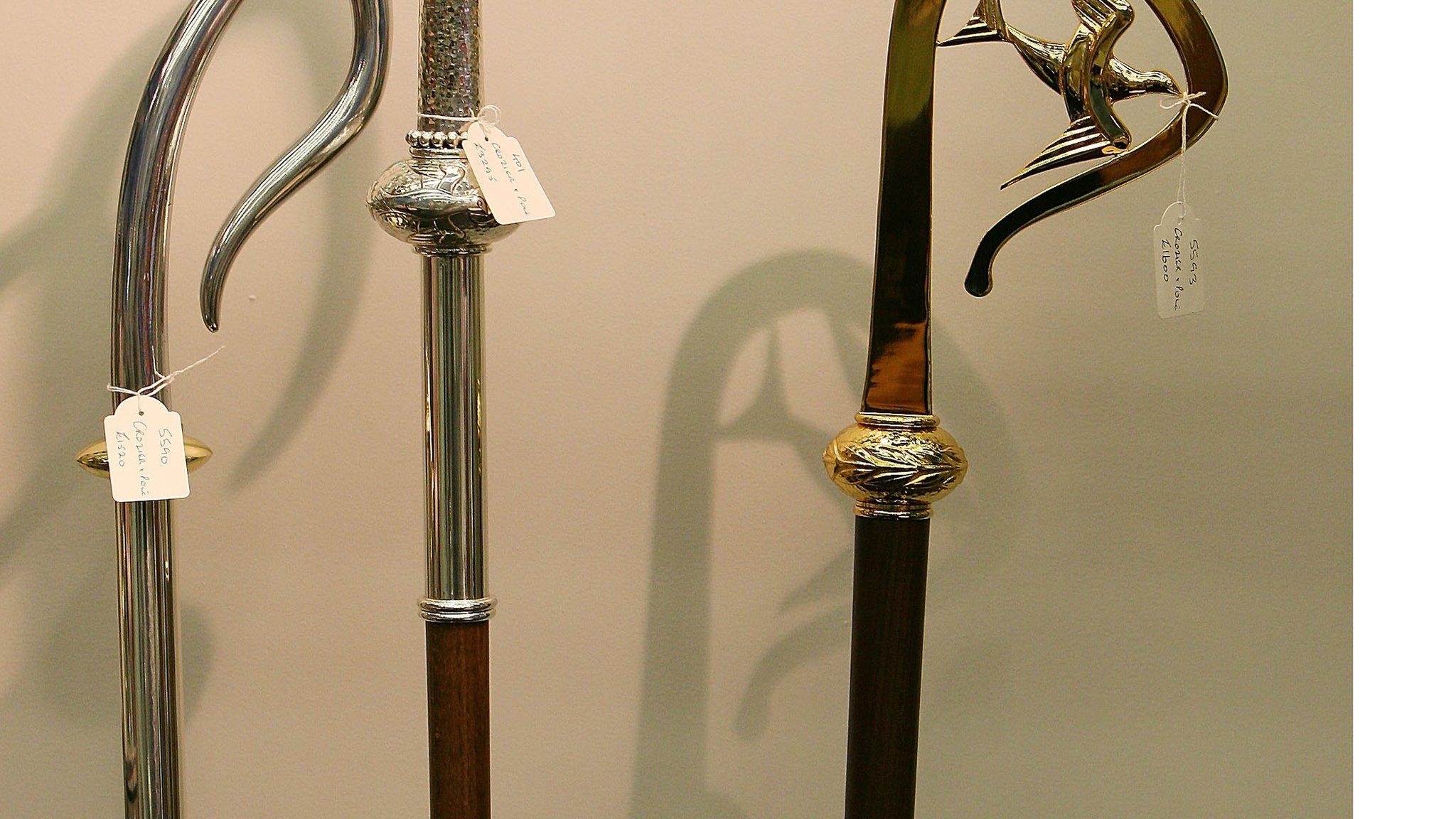Women bishops: PM 'very sad' at Church of England rejection
- Published
David Cameron told the Commons the Church of England needed "a sharp prod"
David Cameron has said he is "very sad" that the Church of England rejected the introduction of women bishops.
But he said Parliament had to "respect the individual institutions and the way they work".
On Tuesday 324 members of the synod voted for women bishops - but its voting rules meant the 122 votes against were enough to block it.
The next Archbishop of Canterbury, Bishop of Durham Justin Welby, has insisted the move will go ahead.
He said he agreed with the Archbishop of York, Dr John Sentamu, who insisted there would be women bishops during his lifetime.
Mr Cameron - who is a supporter of woman bishops - told MPs: "I'm very sad about the way the vote went yesterday.
"I think it's important for the Church of England to be a modern church in touch with society, as it is today, and this was a key step they needed to take."
Dr Sentamu said: "The principle [of women bishops] has already been accepted by the general synod. It has already been accepted by all the dioceses.
"So what we need to do is find the legislation - 99.9% of the legislation is there - it's this little business of provision for those who are opposed."
That view was echoed by the Bishop of Durham, the Right Reverend Justin Welby - who will succeed Rowan Williams when he steps down at the end of the year.
Bishop Welby said: " [Archbishop] Sentamu has said there will be women bishops and I agree with him.
"The Church has voted overwhelmingly in favour of the principle. It is a question of finding a way that there is a real consensus that this is the right way forward.
"That is going to take some time, some care, and some prudence."
Asked whether he was determined to push the issue Bishop Welby said: "I'm going to listen to all the other bishops and we will talk together and decide together."
The proposed legislation paving the way for women bishops needed to gain two-thirds majority support in each of the synod's three houses - bishops, clergy and laity - but fell short by six votes in the House of Laity.
Church rules state that the measure cannot be brought back before the synod "in the same form" during the current term, ending in 2015.
During Prime Minister's Questions Labour MP Ben Bradshaw asked David Cameron what parliament could do to "ensure that the overwhelming will of members of the Church of England, and of this country, is respected".
Mr Cameron responded: "I'll certainly look carefully at what he says. What I would say, though, is the Church has its own processes and own elections, hard for some of us to understand and we have to respect individual institutions and the decisions they make."
'Very dangerous moment'
Archbishop Rowan Williams: "It seems we are wilfully blind"
Later, on the World at One on BBC Radio 4, Mr Bradshaw described the rejection of women bishops as a "very dangerous moment" for the Church.
He said: "The Church of England is established - it is actually answerable to Parliament - and if the Church of England synod is not able to save itself on this issue then I think parliament does have a role.
"If the synod can't sort it out, we need to help them."
Mr Bradshaw said although it was not clear what parliament could do, there had been discussion as to whether the Church's exemption from equality legislation could be repealed.
The votes were, external 44 for and three against with two abstentions in the House of Bishops, 148 for and 45 against in the House of Clergy, and 132 for and 74 against in the House of Laity.
The House of Laity is the largest element of the general synod and is made up of lay members of the Church elected by its 44 dioceses.
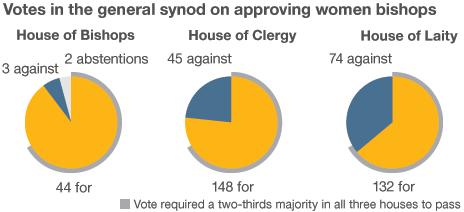
Earlier, Archbishop of Canterbury Rowan Williams told the general synod that it could be seen as "wilfully blind" to modern trends and priorities.
He said: "We have, to put it very bluntly, a lot of explaining to do.
"Whatever the motivations for voting yesterday, whatever the theological principle on which people acted and spoke, the fact remains that a great deal of this discussion is not intelligible to our wider society - worse than that, it seems that we are wilfully blind to some of the trends and priorities in that wider society."
- Published21 November 2012
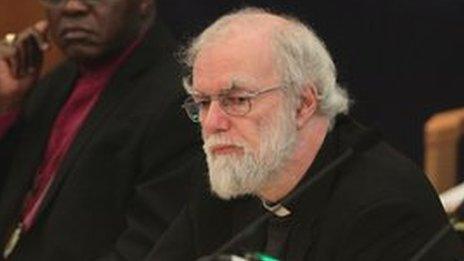
- Published21 November 2012
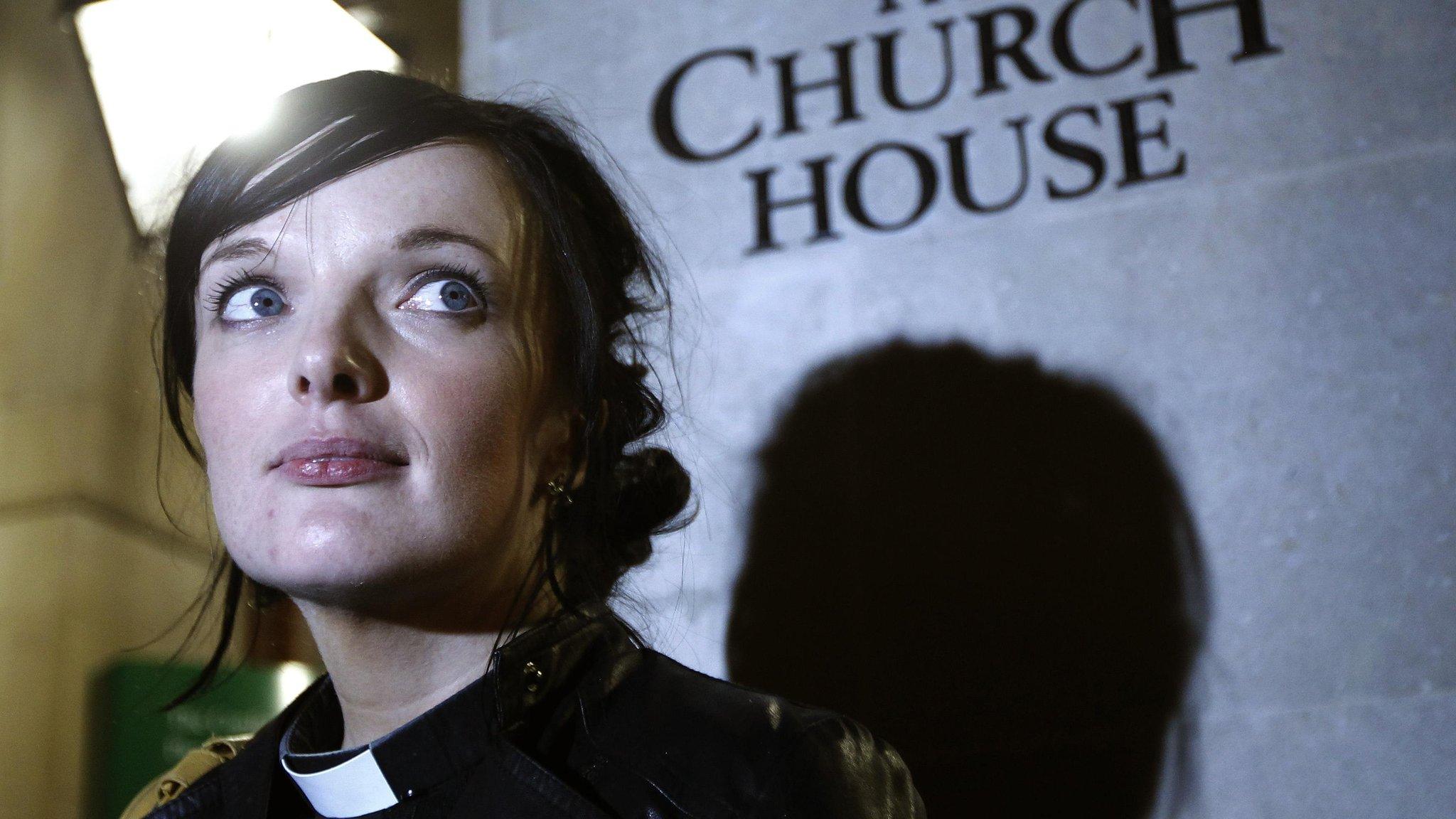
- Published21 November 2012
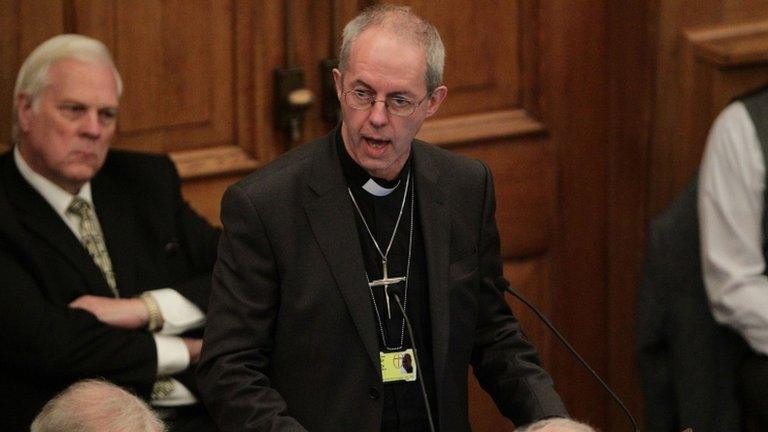
- Published21 November 2012
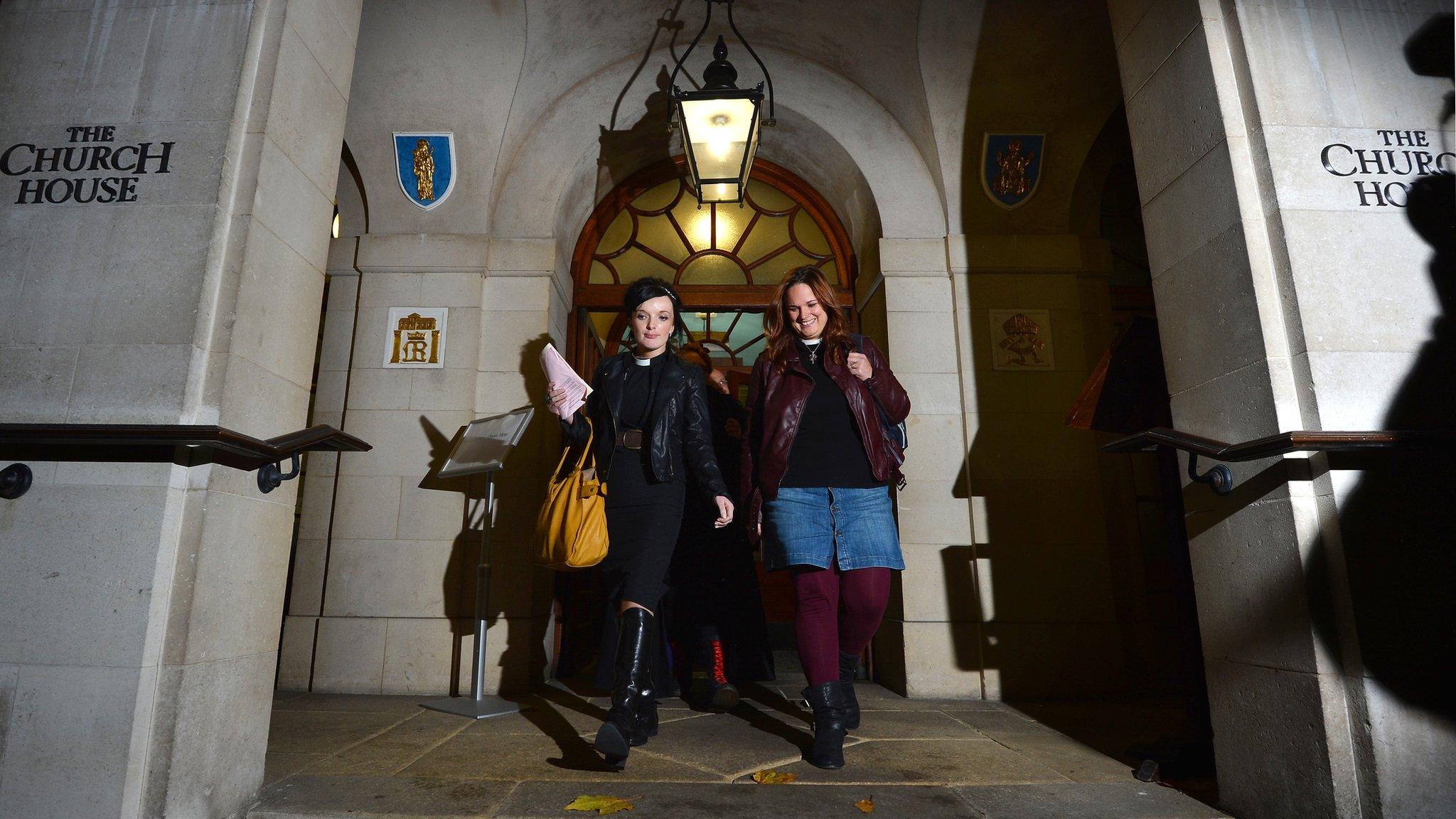
- Published21 November 2012
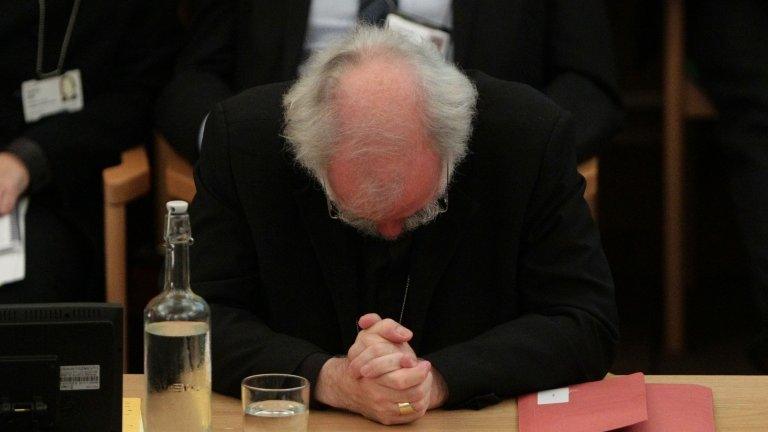
- Published16 November 2014
